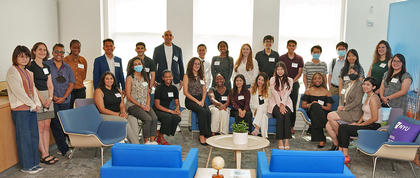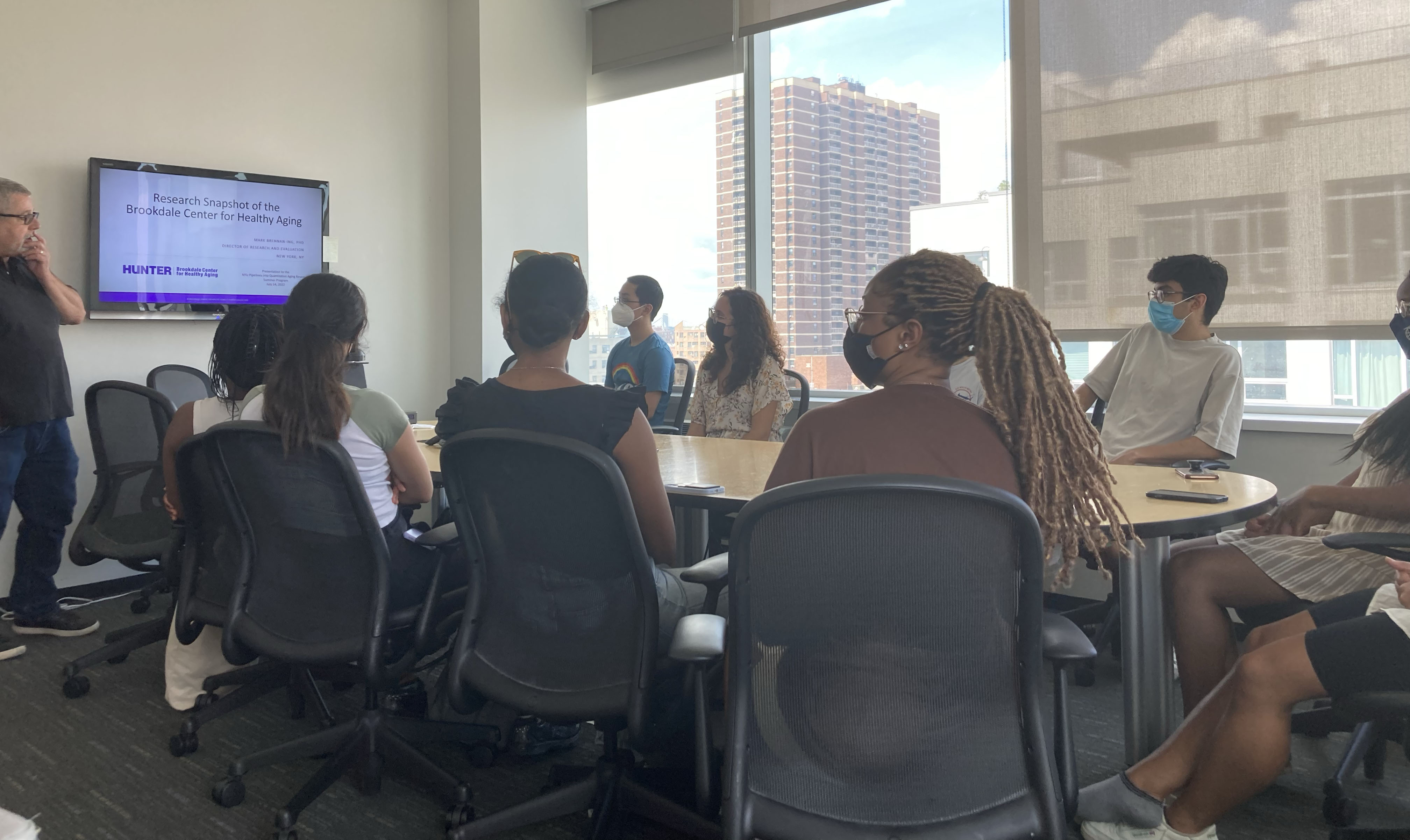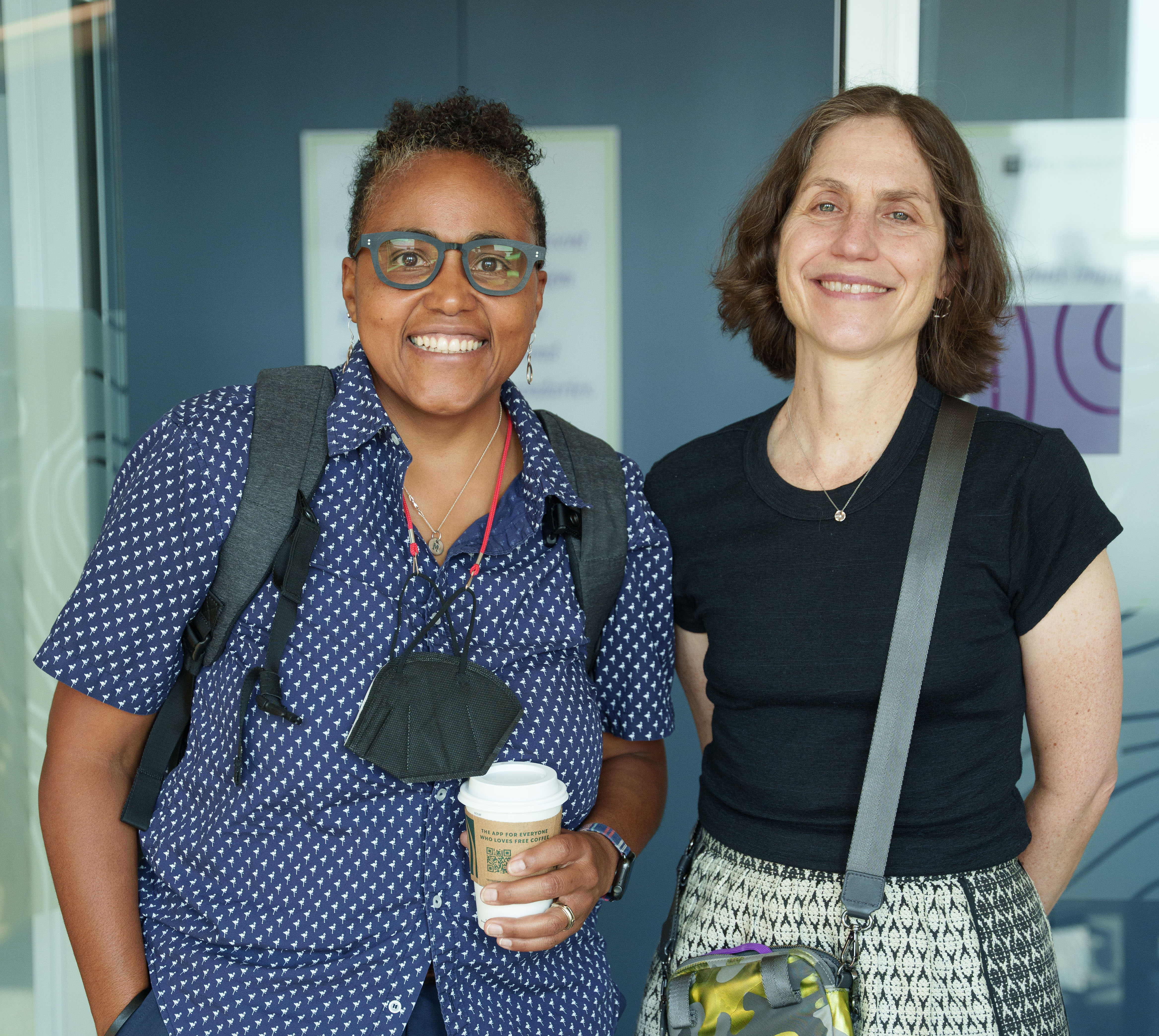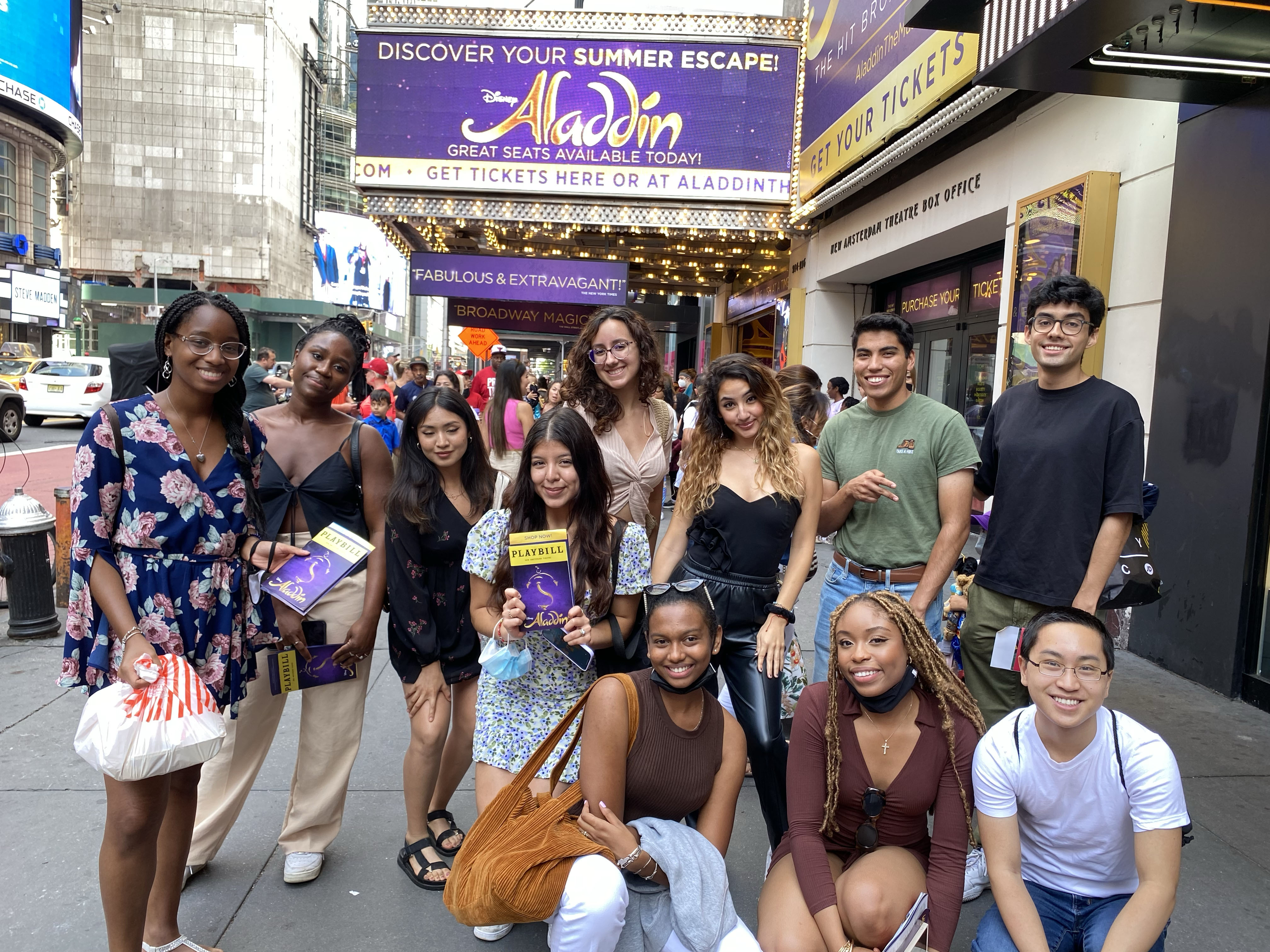
Pictured: 2021 cohort, 2022 PQAR cohort and personnel with Dr. Scarlett L. Bellamy (photo credit: ©Myaskovsky: Courtesy of NYU Photo Bureau)
The Department of Biostatistics hosted its second annual Pipelines into Quantitative Aging Research (PQAR) program, aiming to increase the participation of underrepresented minority groups in public health with an intensive six-week summer course of study to train future researchers under the supervision of NYU faculty mentors. Students from across the nation learn how to clean data, perform analyses and create simulations -- gaining skills in how to solve problems in age-related illnesses and potentially jump-starting a career in public health.

Pictured: PQAR students listening to Dr. Mark Brennan-Ing, Director of Research and Evaluation at Hunter College's Brookdale Center for Healthy Living & Aging
Over the course of the summer, students engage in professional development by attending faculty lectures, site visits, GRE prep courses and presentations by prominent guest speakers who discuss their unique journey and research. Each segment is designed to highlight the wealth of opportunities for minority students in STEM fields and aging research. The culminating experience is a symposium where PQAR students present their research projects to an audience of their peers, faculty mentors, program alumni and the wider GPH community. Students also take some time to explore what New York City has to offer: this summer they attended a Broadway show, along with other quintessential NYC attractions.

Pictured (left to right): Symposium Keynote speaker Dr. Scarlett L Bellamy, former vice president of the American Statistical Association and professor of biostatistics at the Drexel University Dornsife School of Public Health and GPH department of biostatistics chair Rebecca Betensky (photo credit: ©Myaskovsky: Courtesy of NYU Photo Bureau)

Pictured: Students going to see Aladdin on Broadway
For lasting impact after the program ends, GPH personnel conduct follow-up mentoring, provide funding support for attendance at STEM-focused conferences, and offer continuing research and professional development opportunities. They even invite students to participate in NYU’s January term. In fact, a number of students from the inaugural cohort have continued their research and contributed to a forthcoming publication in the International Journal of Aging & Human Development.
GPH's Department of Biostatistics is committed to diversifying quantitative public health, and this program is just one of many initiatives created to achieve that goal. PQAR will begin to recruit a new round of applicants in the fall, and the faculty and staff look forward to another year of making an impact on the academic and professional growth of underrepresented and minority students. Their goal is the continued development of future quantitative specialists, and the creation of a large network of biostatisticians who will make their own mark in public health research.
Pictured: Dr. Anarina Murillo and MS student Emma Risner with PQAR students Valerie Lobato, Lourdes S. Romañch-Alaverez and Clementine Sikpe